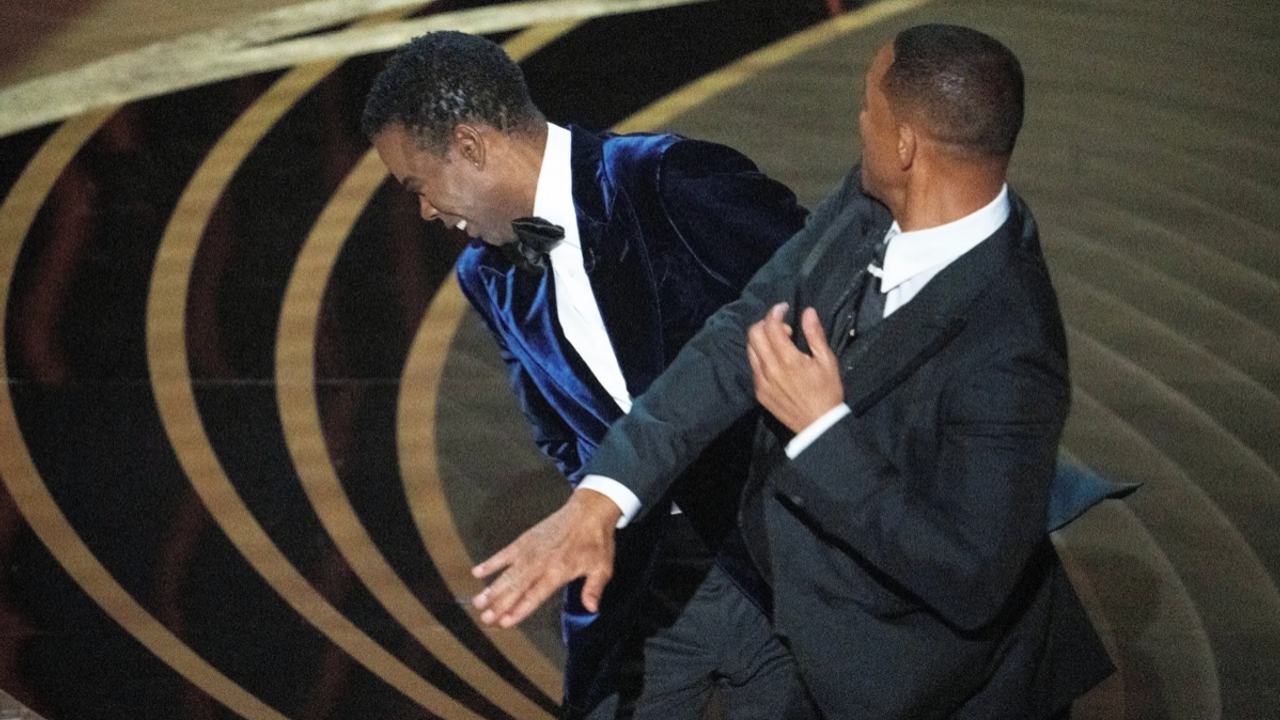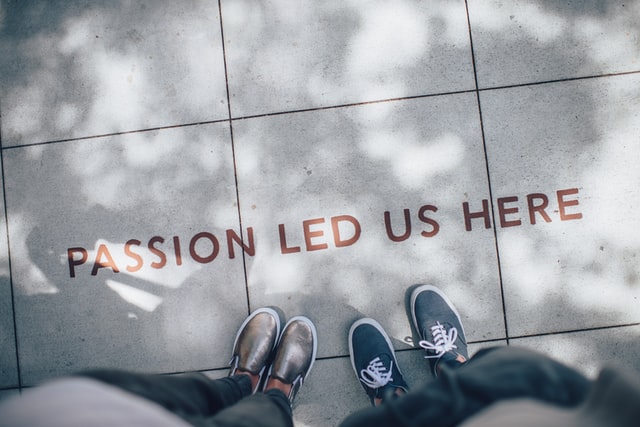The slap heard around the world: Will Smith and the Academy Awards - a blog that is NOT about my opinion on the issue

Photo source: Ruth Fremson/The New York Times
The media has been inundated this week with EVERYONE’s opinion about Will Smith slapping Chris Rock.
Everyone seems to have a perspective on the issue they feel we are entitled to hear:
- There is no excuse for what Will did and he shouldn’t have done that;
- Violence is never OK;
- What he did was understandable and justified because of what Chris Rock said;
- What Chris Rock said was offensive and insensitive to Jada Pinkett-Smith’s pain and was unacceptable;
- Chris is a comedian and every topic is fair game based on freedom on speech;
- Will shouldn’t have gotten a standing ovation when he won the Oscar;
- Will should apologize and once he apologized was his apology good enough?;
- Chris should apologize for what he said;
- Should did Chris accept the apology or file charges?;
- This was a display of toxic masculinity….or it was a man protecting his family;
- Jada Pinkett-Smith can speak for herself;
- The producers of the Oscars are partially to blame for this;
- This was an attack on free speech and an example of cancel culture;
….or whatever other opinion you may hold.
To be clear this is not another post about my opinion on the issue, and why my opinion is right and you should agree with me, and if you don’t then you are wrong. Instead, this is a stroll down conflict transformation lane, looking at the ways of working, interacting, and being that contribute to de-escalating and shifting a polarized conflict.
Back to that list of opinions.
None of these opinions create the space for forgiveness, accountability, healing and finding a way forward. They are just opinions that inflame the space around the conflict. Opinions are like votes on an issue, and are about aligning ourselves with a side, a side righteously defined as right or wrong. Votes and opinions are about winning, not about de-escalating the conflict. Votes and opinions on conflicts that don’t actually involve you just add to a divisive, volatile space that exacerbates the state of the conflict. So reserve your opinion if you can, especially on conflicts that aren’t central to your own identity or values.
When we clearly define the sides in a conflict as right or wrong or good and bad things will escalate. Sides are like the childhood game of red rover where children line up across a great divide, holding hands tightly. Then they call someone from the other side over but their goal isn’t to have them join their line; instead, it is to create a wall they can’t break through. People get injured running into the line, feelings are hurt, and eventually, one side ‘wins’ and the other side loses. It was one of my least favourite childhood games, and remains a great analogy for the divide of conflict and the rise of toxic polarization.
Like many of you, we live in societies where we have a right to raise our voice and express our opinions. However, is not enough to have a right. A right on its own lacks integrity without responsibility. We live in societies where right is paramount—the right to protest, march, petition, disengage, blame, shame and ridicule, the right to attack, discriminate, and slander – online and in person.
We’ve created an illusion that when we sign a petition, post on Facebook or march in a protest that we’ve changed the world. Often, we haven’t changed much—we’ve contributed to the collective exhale of opinions, opposition, or resistance without creating the future we are calling for. We haven’t seen into the hearts of those who see the world differently than we do, or who hold different opinions. Usually, we’ve talked to people who believe what we do, and demonized and separated ourselves from others, often justifying that they are wrong, and we are right.
When we value right over responsibility, we are all for one, and no one for all. We value our own right to an opinion over the needs of our neighbours, those who are marginalized, or the collective good.
We need to bring back responsibility—for the quality of our democracy, for the practice of talking with each other, for the ability to truly solve tough challenges in our lives, organizations, and communities. There is your truth, my truth, and the divide between us. The space between us; that’s where we resolve conflict.
Back to Will, Chris, Jada, the Academy, and the public arena.

Photo by Tim Johnson on Unsplash
Conflict feeds on simplicity; introducing complexity supports conflict transformation
When we try to define sides as right or wrong, good or bad we are attempting to simplify a situation and also to identify others who think the same as we do. Those acts further inflame conflict, because it is rarely simple or easy to solve. When we introduce complexity, we require people to grapple with the patterns and nuances of a situation, and to more deeply understand and work to find a new way forward that looks at the whole picture, rather than the parts of the whole.
In this situation there are some big issues - the slap is not just a slap:
- This is about free speech and also about hurting people through public humiliation.
- This is about a man defending his wife, and a woman’s right and ability to defend herself.
- This is about a culture that glorifies ‘strength’ and action and also about how we talk to each other when things are difficult.
- This is about an organization that glorifies the cult of personality and also about our need to have structures and norms that allow everyone to be treated with respect.
- This is about personal responsibility for impact, whatever that impact is.
And many more issues – this is complex.
I have a personal button that gets pushed when people offer their top 10 tips, or 3 easy techniques to resolve conflict. These simple tips discredit the deep complexity that comes with conflict and encourages us to think that if we just do this one thing everything will be better. It creates false expectations and contributes to transactional approaches that often result in dehumanization, manipulation or disrespect in our high stakes interactions with each other. You need skills, knowledge and ways of being to transform conflict, and the solution is as complex as the conflict.
We need to see the immediate event, and then see the patterns that form the context for this conflict, and then we need to hold the issues and the ways of thinking and being that contribute to transforming the conflict at the same time.
Recognize there is you, me, and the space of the conflict
In every conflict, there is you, me, and the space.
In this conflict, there is Will, Chris, Jada, and the Academy. There are others who got involved at the immediate event at the edges of the conflict.
Then there is EVERYONE ELSE in the space. The space is so loud that its energy is way out of proportion to the actual conflict and the space is escalating, with clear sides being defined.
In the space of this conflict, it is important to note that no one can transform a conflict by themselves. Will can’t do it by apologizing and resigning. Chris can’t do it by taking responsibility for his words. The Academy can’t do it by censoring Will. Jada can’t do it through silence. Changing the space of the conflict will require a new approach that works with the complexity of the issue, takes multiple paths at the same time, and involves multiple people within the system.
Here is a way to re-imagine a path forward:
- What if Will, Chris, Jada, the Academy, women’s rights advocates, unions representing actors, free speech advocates, and more came together to talk about the event and what they witnessed and experienced?
- What if they dove into deepening conversation, to consider ways to reduce violence and increase justice in the sector?
- What if they brainstormed ways to change or transform future award shows to celebrate humanity, difference, and achievement creating norms where everyone was respected?
- What if each of us who has an opinion on the issue asks ourselves if there is another way to see the situation?
- What if each of us who has an opinion and feels the need to voice that view also chooses to offer constructive solutions and ideas that respect those involved and the complexity of the situation, rather than just ‘voting’ on the event?
- What if each of us who has an opinion on the issue went a step further and intentionally sought out someone who has expressed a perspective quite opposite to our own and engaged with them with curiosity, kindness, and genuine inquiry to understand more?

Photo by Ian Schneider on Unsplash
Focus on alignment versus agreement
When I am asked to guide people out of conflict into something new and different I always begin by talking about feelings as a path to making meaning, establishing relationships and developing trust, and centering shared humanity.
Once we see each other as fully human, we can begin the slow process of talking about the issues. I don’t start with the issues – we already know we don’t agree on them. Instead, let’s be fully, messily, beautifully human together in all of our differences and similarities and let’s celebrate that humanity. When I can really see you as a flawed and gorgeous person with your own loves, values and hopes, and you can see me that way, then we can begin to talk.
Sometimes people suggest we don’t have time to do this, or that its unprofessional to talk about our feelings. It’s time we agreed that feelings matter. They aren’t the only things that matter but they are more important than we think. They are part of being fully human, required for fulsome and sustainable decision-making, and a reality of having brave, honest conversations. The sooner we release the myth that we are a rational, fact-based society governed solely by science and data, the sooner we can move on to solving real problems.
As evidenced by the slap at the Oscars, we are all flawed and fully human.
It matters that we put heart at the centre of our tough conversations. Caring is the key to building trust, and strengthening relationships. It is not a coincidence that trust in public institutions has declined as we have increased our reliance on facts over feelings. When we have a conflict or public opposition on an issue, we can’t separate the issue from the people.
As part of centering humanity, we need to remember that we are all flawed, and mistakes are core to growth and learning. No one is defined by a single action or behaviour. In a society that is volatile and polarized the public arena goes quickly to blame and shame, condemning people by a single act rather than the fullness of who they are.
So Will Smith is not just this slap; he is the slap, and the Prince of BelAir, and the guy who saved the world in Independence Day. He has struggled in his marriage, and had a long partnership too. He has been open and vulnerable about living and raising a family in the spotlight. He is an Oscar winner. (There are probably many more things that he is but I’ve exhausted my knowledge of Will Smith.) And he is this slap.
The same is true for Chris Rock. He is what he said about Jada Pinkett-Smith, making light of her alopecia. And he is many more things too. Just as Jada is a woman he has been open about living with alopecia, and many more things as well.
May Angelou once said “When someone shows you who they are believe them.” This is about our own perceptions, and that when someone demonstrates to us who they are, believe that, rather than relying on who they say they are. We need to go beyond surface level when we apply this wisdom – there are the words that led to the slap, the slap itself, and so very much more that tell us about the fullness of these human beings.
Resist the urge to de-humanize others by defining them by a single act or action.
Conflict transformation requires changes in me, you, and the system
Take the time to find out what threatens the other person and then stop doing it, taking full responsibility for the impact of your choices. In every conflict, it is important to look for opportunities for accountability, responsibility for impact and rebuilding trust. Choose how you show up and what your intentions are in de-escalating the conflict. Consider the impact of your actions, thoughts, and behaviours and take responsibility. Make conciliatory gestures and offer to create lasting change.
It matters that you believe in the possibility of the brave, honest conversation and have faith in what can happen when people come together to talk with each other about tough issues.
When you come from a place of unconditional, positive regard you manifest that in others and in the conversation. When you commit to working through the conflict and to finding solutions, that commitment echoes when things get heated. When you are open to possibility, to new ideas, to deeply understanding other ways of thinking and seeing the world you hold space for transformation to emerge. When you practice empathy and commit to building trust and relationships, others follow suit.
When you know what you stand for, why you are showing up as a leader, participant, or facilitator, when you consciously choose “yes” to finding new solutions and deeply commit to inclusion, trust, responsibility and the important conversations we need to have, you can change the world.
It is about more than what you do or what you know, it is about how you want to be. To do that, first, you need to choose where you stand, and what you stand for.
The slap was so much more than a slap.
It is an opportunity to make system change in a system that is broken.
It is an opportunity to centre humanity and move away from blame and shame and toxic polarization.
It is an opportunity for each of us to take responsibility for voicing our opinions and contributing to positive change, or to raise our voices in the clamour of being right and growing the divide between people.
The slap wasn’t our conflict, but it is a great opportunity to reconsider the world we have, and the world we want to be part of creating.

